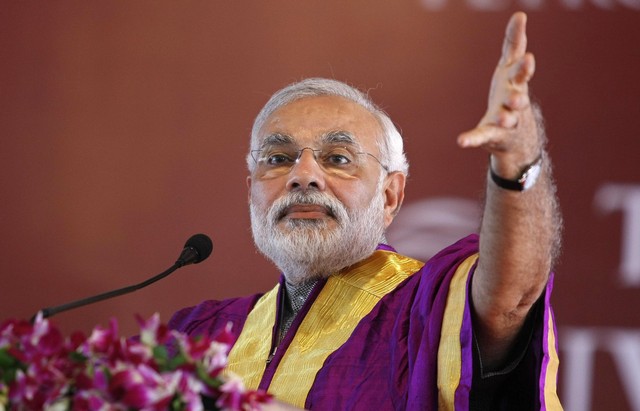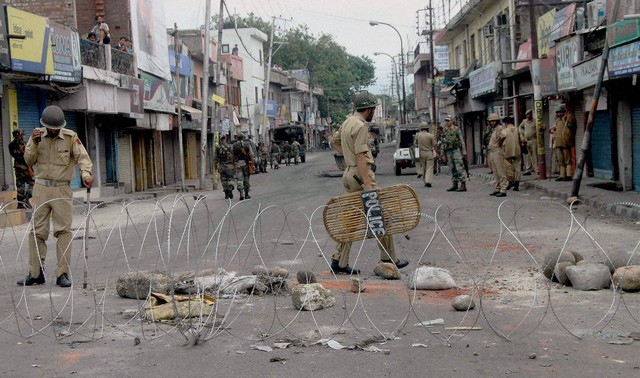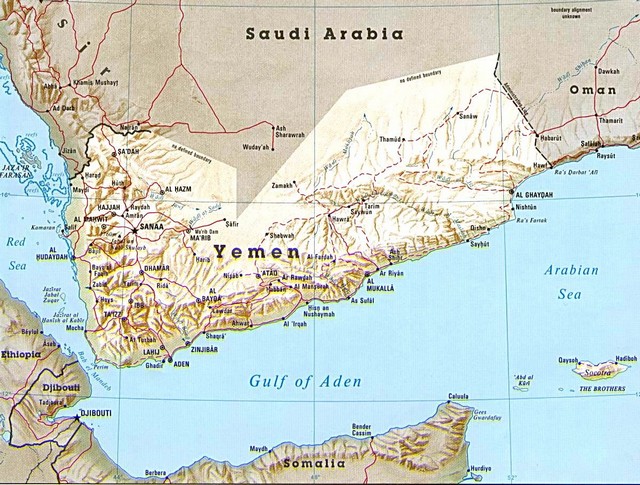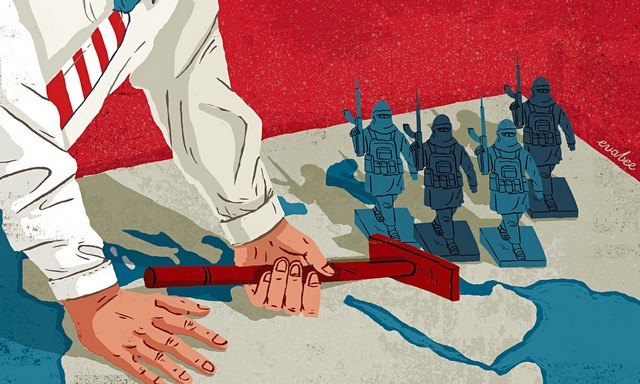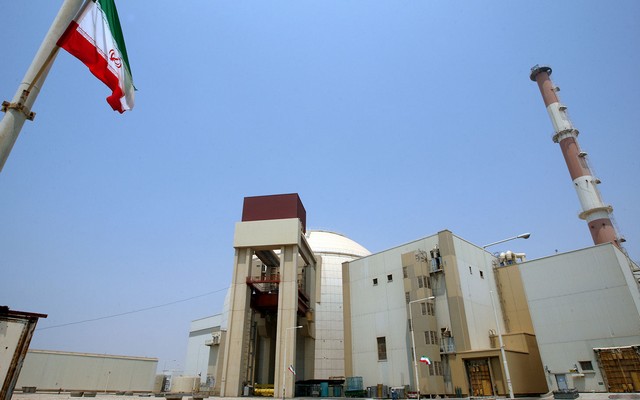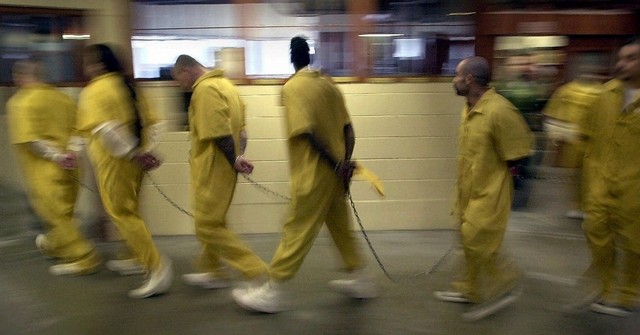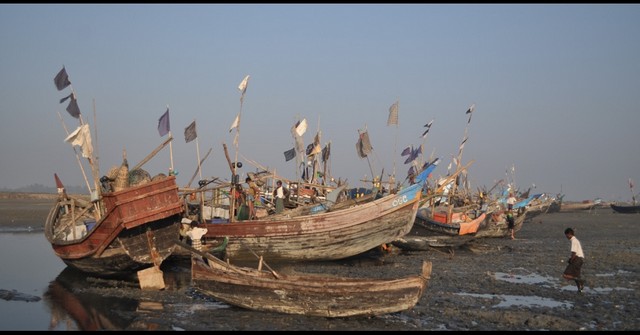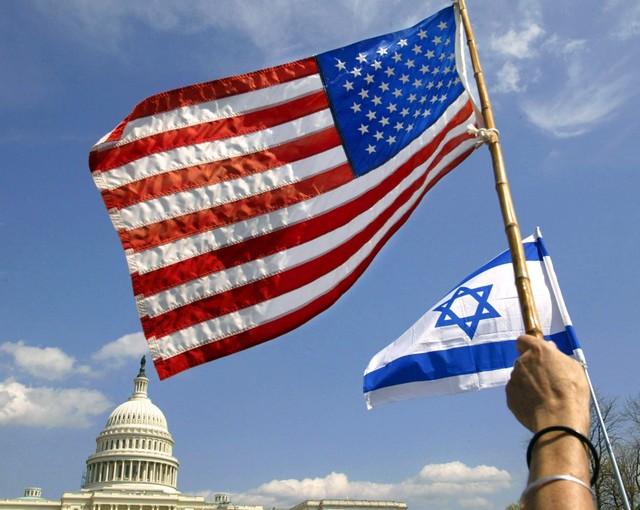By Bill Quigley
The US Department of Justice (DOJ) reports 2.2 million people are in our nation’s jails and prisons and another 4.5 million people are on probation or parole in the US, totaling 6.8 million people, one of every 35 adults. We are far and away the world leader in putting our own people in jail. Most of the people inside are poor and Black. Here are 40 reasons why.
One. It is not just about crime. Our jails and prisons have grown from holding about500,000 people in 1980 to 2.2 million today. The fact is that crime rates have risen and fallen independently of our growing incarceration rates.
Two. Police discriminate. The first step in putting people in jail starts with interactions between police and people. From the very beginning Black and poor people are targeted by the police. Police departments have engaged in campaigns of stopping and frisking people who are walking, mostly poor people and people of color, without cause for decades. Recently New York City lost a federal civil rights challenge to their police stop and frisk practices by the Center for Constitutional Rights during which police stopped over 500,000 people annually without any indication that the people stopped had been involved in any crime at all. About 80 percent of those stops were of Black and Latinos who compromise 25 and 28 percent of NYC’s total population. Chicago police do the same thing stopping even more people also in a racially discriminatory way with 72 percent of the stops of Black people even though the city is 32 percent Black.
Three. Police traffic stops also racially target people in cars. Black drivers are 31 percent more likely to be pulled over than white drivers and Hispanic drivers are 23 percent more likely to be pulled over than white drivers. Connecticut, in an April 2015 report, reported on 620,000 traffic stops which revealed widespread racial profiling, particularly during daylight hours when the race of driver was more visible.
Four. Once stopped, Black and Hispanic motorists are more likely to be given tickets than white drivers stopped for the same offenses.
Five. Once stopped, Blacks and Latinos are also more likely to be searched. DOJ reportsBlack drivers at traffic stops were searched by police three times more often and Hispanic drivers two times more often than white drivers. A large research study in Kansas Cityfound when police decided to pull over cars for investigatory stops, where officers look into the car’s interior, ask probing questions and even search the car, the race of the driver was a clear indicator of who was going to be stopped: 28 percent of young Black males twenty five or younger were stopped in a year’s time, versus white men who had 12 percent chance and white women only a 7 percent chance. In fact, not until Black men reach 50 years olddo their rate of police stops for this kind of treatment dip below those of white men twenty five and under.
Six. Traffic tickets are big business. And even if most people do not go directly to jail for traffic tickets, poor people are hit the worst by these ticket systems. As we saw with Ferguson where some of the towns in St. Louis receive 40 percent or more of their city revenues from traffic tickets, tickets are money makers for towns.
Seven. The consequences of traffic tickets are much more severe among poor people. People with means will just pay the fines. But for poor and working people fines are a real hardship. For example, over 4 million people in California do not have valid driver’s licenses because they have unpaid fines and fees for traffic tickets. And we know unpaid tickets can lead to jail.
Eight. In schools, African American kids are much more likely to be referred to the police than other kids. African American students are 16 percent of those enrolled in schools but 27 percent of those referred to the police. Kids with disabilities are discriminated against at about the same rate because they are 14 percent of those enrolled in school and 26 of those referred to the police.
Nine. Though Black people make up about 12 percent of the US population, Black children are 28 percent of juvenile arrests. DOJ reports that there are over 57,000 people under the age of 21 in juvenile detention. The US even has 10,000 children in adult jails and prisons any given day.
Ten. The War on Drugs targets Black people. Drug arrests are a big source of bodies and business for the criminal legal system. Half the arrests these days are for drugs and half of those are for marijuana. Despite the fact that Black and white people use marijuana at the same rates, a Black person is 3.7 times more likely to be arrested for possession of marijuana than a white person. The ACLU found that in some states Black people were six times more likely to be arrested for marijuana than whites. For all drug arrests between 1980 and 2000 the U.S. Black drug arrest rate rose dramatically from 6.5 to 29.1 per 1,000 persons; during the same period, the white drug arrest rate barely increased from 3.5 to 4.6 per 1,000 persons.
Eleven. Many people in jail and prison because the US has much tougher drug laws and much longer sentences for drug offenses than most other countries. Drug offenders receive an average sentence of 7 months in France, twelve months in England and 23 months in the US.
Twelve. The bail system penalizes poor people. Every day there are about 500,000 people are in jails, who are still presumed innocent and awaiting trial, just because they are too poor to pay money to get out on bail. Not too long ago, judges used to allow most people, even poor people to be free while they were awaiting trial but no more. In a 2013 study of New York City courts, over 50% of the people held in jail awaiting trial for misdemeanor or felony charges were unable to pay bail amounts of $2500 or less.
Thirteen. This system creates a lot of jobs. Jails and prisons provide a lot of jobs to local, state and federal officials. To understand how this system works it is good to know the difference between jails and prisons. Jails are local, usually for people recently arrested or awaiting trial. Prisons are state and federal and are for people who have already been convicted. There are more than 3000 local jails across the US, according to the Vera Institute, and together usually hold about 500,000 people awaiting trial and an additional 200,000 or so convicted on minor charges. Over the course of a year, these local jails process over 11.7 million people. Prisons are state and federal lockups which usually hold about twice the number of people as local jails or just over 1.5 million prisoners.
Fourteen. The people in local jails are not there because they are a threat to the rest of us. Nearly 75 percent of the hundreds of thousands of people in local jails are there for nonviolent offenses such as traffic, property, drug or public order offenses.
Fifteen. Criminal bonds are big business. Nationwide, over 60 percent of people arrested are forced to post a financial bond to be released pending trial usually by posting cash or a house or paying a bond company. There are about 15,000 bail bond agents working in the bail bond industry which takes in about $14 billion every year.
Sixteen. A very high percentage of people in local jails are people with diagnosed mental illnesses. The rate of mental illness inside jails is four to six times higher than on the outside. Over 14 percent of the men and over 30 percent of the women entering jails and prisons were found to have serious mental illness in a study of over 1000 prisoners. Arecent study in New York City’s Rikers Island jail found 4,000 prisoners, 40 percent of their inmates, were suffering from mental illness. In many of our cities, the local jail is the primary place where people with severe mental problems end up. Yet treatment for mental illness in jails is nearly non-existent.
Seventeen. Lots of people in jail need treatment. Nearly 70 percent of people prison meet the medical criteria for drug abuse or dependence yet only 7 to 17 percent ever receive drug abuse treatment inside prison.
Eighteen. Those who are too poor, too mentally ill or too chemically dependent, though still presumed innocent, are kept in cages until their trial dates. No wonder it is fair to say, as the New York Times reported, our jails “have become vast warehouses made up primarily of people too poor to post bail or too ill with mental health or drug problems to adequately care for themselves.”
Nineteen. Poor people have to rely on public defenders. Though anyone threatened with even a day in jail is entitled to a lawyer, the reality is much different. Many poor people facing misdemeanor charges never see a lawyer at all. For example, in Delaware more than 75 percent of the people in its Court of Common Pleas never speak to a lawyer. A study of Jackson County Michigan found 95 percent of people facing misdemeanors waived their right to an attorney and have plead guilty rather than pay a $240 charge for a public defender. Thirteen states have no state structure at all to make sure people have access to public defenders in misdemeanor courts.
Twenty. When poor people face felony charges they often find the public defenders overworked and underfunded and thus not fully available to provide adequate help in their case. In recent years public defenders in Kentucky, Louisiana, Missouri and Pennsylvania were so overwhelmed with cases they refused to represent any new clients. Most other states also have public defender offices that have been crushed by overwork, inadequate finances and do not measure up to the basic principles for public defenders outlined by the American Bar Association. It is not uncommon for public defenders to have more than 100 cases going at the same time, sometimes several hundred. Famous trial lawyer Gerry Spence, who never lost a criminal case because of his extensive preparation for each one, said that if he was a public defender and represented a hundred clients he would never have won a case.
Twenty One. Lots of poor people plead guilty. Lack of adequate public defense leads many people in prison to plead guilty. The American Bar Association reviewed the US public defender system and concluded it lacked fundamental fairness and put poor people at constant risk of wrongful conviction. “All too often, defendants plead guilty, even if they are innocent, without really understanding their legal rights or what is occurring…The fundamental right to a lawyer that America assumes applies to everyone accused of criminal conduct effectively does not exist in practice for countless people across the US.”
Twenty Two. Many are forced to plead guilty. Consider all the exonerations of people who were forced by police to confess even when they did not do the crime who were later proven innocent: some criminologists estimate 2 to 8 percent of the people in prison are innocent but pled guilty. One longtime federal judge estimates that there is so much pressure on people to plead guilty that there may easily be 20,000 people in prison for crimes they did not commit.
Twenty Three. Almost nobody in prison ever had a trial. Trials are rare in the criminal injustice system. Over 95 percent of criminal cases are finished by plea bargains. In 1980, nearly 20 percent of criminal cases were tried but that number is reduced to less than 3 percent because sentences are now so much higher for those who lose trials, there are more punishing drug laws, mandatory minimum sentences, and more power has been given to prosecutors.
Twenty Four. Poor people get jail and jail makes people worse off. The poorest people, those who had to remain in jail since their arrest, were 4 times more likely to receive a prison sentence than those who got out on bail. There are tens of thousands of rapes inside jails and prisons each year. DOJ reports over 4,000 inmates are murdered each year insideeach year. As US Supreme Court Justice Kennedy told Congress recently “This idea of total incarceration just isn’t working. And it’s not humane. We [society and Congress and the legal profession] have no interest in corrections, nobody looks at it.”
Twenty Five. Average prison sentences are much longer than they used to be, especially for people of color. Since 1990, the average time for property crimes has gone up 24 percent and time for drug crimes has gone up 36 percent. In the US federal system, nearly 75 percent of the people sent to prison for drug offenses are Black or Latino.
Twenty Six. There is about a 70 percent chance that an African American man without a high school diploma will be imprisoned by the time he reaches his mid-thirties; the rate for white males without a high school diploma is 53 percent lower. In the 1980, there was only an 8 percent difference. In New York City, for example, Blacks are jailed at nearly 12 times the rate of whites and Latinos more than five times the rate of whites.
Twenty Seven. Almost 1 of 12 Black men ages 25 to 54 are in jail or prison, compared to 1 in 60 nonblack men. That is 600,000 African American men, an imprisonment rate of five times that of white men.
Twenty Eight. Prison has become a very big private business. Corrections Corporation of America (CCA) owns and runs 67 for-profit jails in 20 states with over 90,000 beds. Along with GEO (formerly Wackenhut), these two private prison companies have donated more than $10 million to candidates and spent another $25 million lobbying according to the Washington Post. They lobby for more incarceration and have doubled the number of prisoners they hold over the past ten years.
Twenty Nine. The Sentencing Project reports that over 159,000 people are serving life sentences in the US. Nearly half are African American and 1 in 6 are Latino. The number of people serving life in prison has gone up by more than 400% since 1984. Nearly 250,000 prisoners in the US are over age 50.
Thirty. Inside prisons, the poorest people are taken advantage of again as most items such as telephone calls to families are priced exorbitantly high, some as high as $12.95 for a 15 minute call, further separating families.
Thirty One. The DOJ reports another 3.9 million people are on probation. Probation is when a court puts a person under supervision instead of sending them to prison. Probation is also becoming a big business for private companies which get governments to contract with them to collect outstanding debts and supervise people on probation. Human Rights Watch reported in 2014 that over a thousand courts assign hundreds of thousands of people to be under the supervision of private companies who then require those on probation to pay the company for the supervision and collect fines, fees and costs or else go to jail. For example, one man in Georgia who was fined $200 for stealing a can of beer from a convenience store was ultimately jailed after the private probation company ran up over a thousand dollars in in fees.
Thirty Two. The DOJ reports an additional 850,000 people are on parole. Parole is when a person who has been in prison is released to serve the rest of their sentence under supervision.
Thirty Three. The DOJ reported in 2012 that as many as 100 million people have a criminal record, and over 94 million of those records are online.
Thirty Four. Everyone can find out people have a record. Because it is so easy to access to arrest and court records, people who have been arrested and convicted face very serious problems getting a job, renting an apartment, public assistance, and education. Eighty-seven percent of employers conduct background checks. Employment losses for people with criminal records have been estimated at as much as $65 billion every year.
Thirty Five. Race is a multiplier of disadvantage in unemployment for people who get out of prison. A study by Professor Devah Pager demonstrated that employers who were unlikely to even check on the criminal history of white male applicants, seriously discriminated against all Black applicants and even more so against Black applicants with criminal records.
Thirty Six. Families are hurt by this. The Sentencing Project reports 180,000 women are subject to lifetime bans from Temporary Assistance to Needy Families because of felony drug convictions.
Thirty Seven. Convicted people cannot get jobs after they get out. More than 60 percent of formerly incarcerated people are unemployed one year after being released. Is it a surprise that within three years of release from prison, about two-thirds of the state prisoners were rearrested?
Thirty Eight. The US spends $80 billion on this big business of corrections every year. As a retired criminal court judge I know says, “the high costs of this system would be worth it if the system was actually working and making us safer, but we are not safer, the system is not working, so the actual dollars we are spending are another indication of our failure.” The cost of being number one in incarceration is four times higher than it was in 1982. Anyone feeling four times safer than they used to?
Thirty Nine. Putting more people in jail creates more poverty. The overall poverty rate in our country is undoubtedly higher because of the dramatic increase in incarceration over the past 35 years with one research project estimating poverty would have decreased by 20 percent if we had not put all these extra people in prison. This makes sense given the factthat most all the people brought into the system are poor to begin with, it is now much harder for them to find a job because of the barriers to employment and good jobs erected by a criminal record to those who get out of prison, the increased number of one parent families because of a parent being in jail, and the bans on receiving food stamps and housing assistance.
Forty. Putting all these problems together and you can see why the Center for American Progress rightly concludes “Today, a criminal record serves as both a direct cause and consequence of poverty.”
What does it say about our society that it uses its jails and prisons as the primary detention facilities for poor and black and brown people who have been racially targeted and jail them with the mentally ill and chemically dependent? The current criminal system has dozens of moving parts from the legislators who create the laws, to the police who enforce them, to the courts which apply them, to the jails and prison which house the people caught up in the system, to the public and business community who decides whom to hire, to all of us who either do something or turn our heads away. These are our brothers and sisters and cousins and friends of our coworkers. There are lots of proposed solutions. To learn more about the problems and the solutions are go to places like The Sentencing Project, the Vera Institute, or the Center for American Progress. Because it’s the right thing to do, and because about 95 percent of the people who we send to prison are coming back into our communities.
Bill Quigley is Associate Director of the Center for Constitutional Rights and a law professor at Loyola University New Orleans. He is a Katrina survivor and has been active in human rights in Haiti for years. He volunteers with the Institute for Justice and Democracy in Haiti (IJDH) and the Bureau de Avocats Internationaux (BAI) in Port au Prince.
This work is licensed under a Creative Commons Attribution-Share Alike 3.0 License
03 June, 2015
Countercurrents.org



